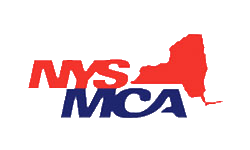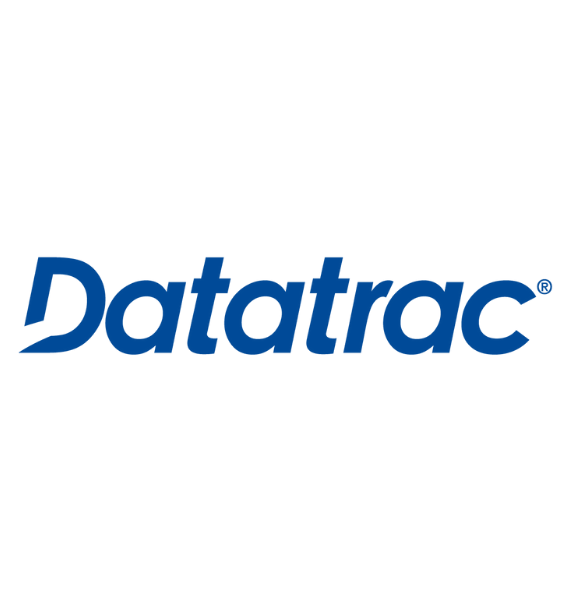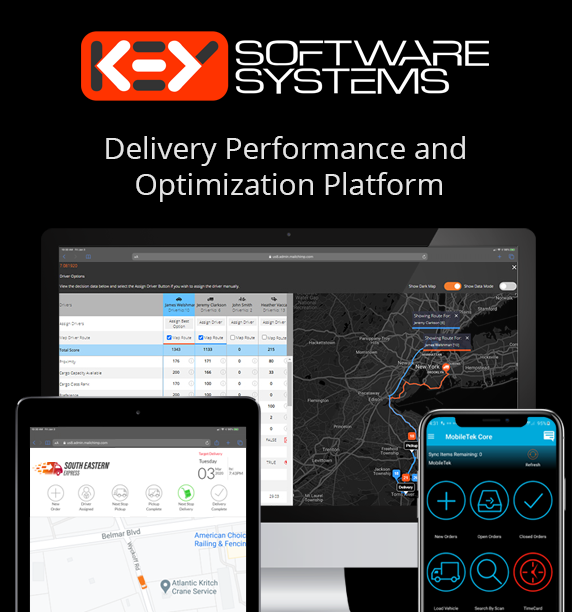Strengthened Labor Protections for Warehouse Workers Takes Effect in New York (June, 2023)
The New York state Labor Department will start to monitor stronger protections for warehouse workers in the state, including mandates they quickly receive data about their work speed and company-set quotas after legislation took effect Monday.
Gov. Kathy Hochul signed the Warehouse Worker Protection Act in December, which requires distribution centers to disclose work performance data to current and former employees and to the state. The bill, passed during last year’s legislative session, also protects workers from being fired or disciplined for failing to meet required quotas, or performance rules including not allowing breaks mandated under state labor law or being forced to work through meals.
“New York’s warehouse workers deserve to be treated with fairness, dignity, and respect and we are making a significant stride toward achieving that,” Hochul said in a statement Monday. “I was proud to sign the Warehouse Worker Protection Act to address unreasonable work quotas and provide warehouse workers with protections from retaliation by their employers. With this legislation now in effect, we are holding firm to our commitment to ensure fairer and safer workplaces for all New Yorkers.”
Employees can request information about their personal performance and quota at any time under the new law, and must receive the information from their employer within 14 calendar days. The changes also protect against retaliation for requesting the information or a company limiting employees’ use of restroom facilities to make quota.
The bolstered protections apply to warehouse distribution centers, or a company classified as warehousing and storage, merchant wholesalres, electronic shopping and mail-order houses and couriers and express delivery services. It excludes farm product warehousing and storage, according to the governor’s office.
“Our warehouse workers play a significant role in keeping our supply chain moving, and they deserve to be treated fairly and equitably,” state Department of Labor Commissioner Roberta Reardon said in a statement. “I thank Gov. Hochul and the Legislature for putting the Warehouse Worker Protection Act in place to ensure these workers are not taken advantage of and are given the protections they deserve.”
Employees who suspect their employer is in violation of the new protections should request information about their required quota in writing and 90 days of data about their personal work speed, comparable aggregate work speed data for employees in similar positions, according to Hochul’s office.
“Warehouse workers suffer serious work-related injuries at a rate more than twice the average for all private industries,” said state AFL-CIO President Mario Cilento. “These workers routinely spend entire shifts speeding through tasks in an attempt to meet quotas mandated by their employers, all too often suffering musculoskeletal and repetitive stress injuries as a result. The Warehouse Worker Protection Act provides long overdue limits to protect warehouse workers from inhumane quotas, and to protect them from retaliation for asserting their rights under this law.”
SANTA FE SPRINGS, CA – The U.S. Department of Labor has obtained a consent judgment as part of its efforts to recover $650,000 in unpaid overtime wages for 26 delivery drivers of a Santa Fe Springs food manufacturer that misclassified them as independent contractors exempt from overtime.
The action by the U.S. District Court for the Central District of California requires Romero’s Food Products Inc. to pay back wages to the affected employees. The court also forbid the company permanently from future Fair Labor Standards Act violations and prohibited Romero from employing any worker for more than 40 hours in a workweek without paying them required overtime pay. The court entered the judgment in April 2023.
The department’s litigation follows an investigation by the department’s Wage and Hour Division that found that, by misclassifying the drivers as independent contractors, Romero’s Food Products denied them the overtime rate required for hours over 40 in a workweek. The company employed the drivers to distribute its products to Walmart, Costco, Albertson’s, Stater Bros. Markets and other retail grocery outlets. Romero’s also failed to maintain accurate employee records.
“Combating employee misclassification continues to be a U.S. Department of Labor priority,” explained Wage and Hour Division Assistant District Director Gayane Aleksanian in West Covina, California. “Employers cannot illegally pay delivery drivers as independent contractors and defend the violation as a common industry practice. Misclassifying employees deprives workers of their basic rights under labor law.”
Investigators also found Romero’s Food Products forced many workers to enter into agreements to handle possible labor disputes outside of court.
“These types of agreements create significant barriers for workers seeking to recover their wages,” said Regional Solicitor Marc Pilotin in San Francisco. “We are determined to help workers recover their full earnings, including for employees bound by mandatory arbitration clauses.”
Founded in 1968, Romero’s Food Products Inc. manufactures, sells and distributes a line of Mexican-style food products throughout North America, Asia and Europe.
The division’s West Covina District Office conducted the investigation. The department’s Regional Solicitor’s Office in San Francisco filed a complaint and obtained the consent judgment on the case.
Learn more about the Wage and Hour Division, including a search tool to use if you think you may be owed back wages collected by the division. Employers and workers can call the division confidentially with questions, regardless of where they are from. The department can speak with callers in more than 200 languages through the agency’s toll-free helpline at 866-4US-WAGE (487-9243). Download the agency’s new Timesheet App for iOS and Android devices – free and now available in Spanish – to track hours and pay.
Governor Hochul Announces Historic Agreement to Increase New York’s Minimum Wage and Index to Inflation as Part of FY 2024 Budget (May, 2023)
Governor Kathy Hochul announced on May 3rd that the FY 2024 Budget agreement includes a transformative plan to help low-wage New Yorkers keep up with the rising cost of living by ncreasing New York’s minimum wage for three years and then tying future increases to inflation. On January 1, 2024, the minimum wage will increase to $16 in New York City and the counties of Nassau, Suffolk and Westchester, and to $15 in all other parts of the State. In 2025 and 2026, the minimum wage will increase by an additional $0.50 in each year, after which the State’s minimum wage would increase at a rate determined by the Consumer Price Index for Urban Wage Earners and Clerical Workers (CPI-W) for the Northeast Region — the best regional measure of inflation. Raising New York’s minimum wage to keep pace with inflation will benefit hundreds of thousands of minimum wage workers across the state.
“In the face of steadily rising costs and inflation, this historic plan to overhaul New York’s minimum wage will ensure that the wages of those hit hardest by the affordability crisis – including women, single mothers, and people of color – keep pace with the cost of living,” Governor Hochul said. This is a win for workers and for businesses: indexing the minimum wage to inflation will help hundreds of thousands of New Yorkers maintain their purchasing power, contribute to the state economy, and support our small business community. This Budget reaffirms my administration’s commitment to addressing the affordability crisis for workers and businesses, and I will continue to work closely with the Legislature on solutions
to provide New Yorkers with relief.”
Following three years of set growth in 2024, 2025, and 2026, beginning January 1, 2027, New York State will increase its minimum wage by the three-year moving average of the CPI-W for the Northeast Region. An “off-ramp” is available in the event of certain economic or budget conditions.
Indexing the minimum wage to inflation will help to maintain the purchasing power of workers’ wages from year to year. And increasing the minimum wage would overwhelmingly benefit low-income workers, particularly women and people of color who comprise a disproportionate share
of minimum wage workers.
Eighteen other states either currently tie their minimum wage to inflation or some other economic formula or are slated to do so, including three states which have minimum wages at or above $15 in 2023. Economic research shows that raising the minimum wage can lead to reductions in poverty, reduced social assistance spending, stimulative spending, improved worker productivity, and other benefits.
New Jersey’s Mini-WARN Act Amendments, Including Mandatory Severance, Now in Effect (May, 2023)
On Jan. 10, 2023, New Jersey Gov. Phil Murphy signed legislation (P.L. 2023 c.142) that implements the long-delayed 2020 amendments to New Jersey’s mini-WARN Act, the Millville Dallas Airmotive Plant Job Loss Notification Act (NJ WARN).
NJ WARN – like the federal WARN Act and other states’ mini-WARN Acts – requires larger employers to provide notice to employees in advance of a mass layoff, plant closing, or reduction-in-force. Failure to give advance notice typically results in the employer having to pay additional wages to the impacted employees.
The amendments to NJ WARN are unique in that they require employers to pay mandatory severance to employees terminated in a qualifying layoff, even if the employer provides timely notice to the employees. The amendments are in effect as of April 10, 2023. As a result, New Jersey employers planning layoffs must now comply with NJ WARN’s costly new requirements:
- As amended, NJ WARN now applies to employers with at least 100 employees nationwide without regard to full-time or part-time status, years of employment, or hours worked per week. (NJ WARN previously did not count or consider part-time employees or employees employed for less than six months);
- NJ WARN is now triggered by a termination of 50 or more employees in a 30-day period who “report to” a place of employment, or “Establishment.” Multiple rounds of layoffs within a 90-day period will be aggregated for this purpose unless the employer can demonstrate a separate cause for each round of layoffs. (NJ WARN previously was triggered by a termination of 500 or more employees or the termination of 50 or more employees representing 1/3 of the full-time employees at an Establishment);
- The term “Establishment,” which used to mean a single, contiguous place of employment, has been expanded to include all locations within New Jersey. (This means that NJ WARN may be trigged by the termination of 50 employees working anywhere in New Jersey, including employees who may be located outside of New Jersey, but who “report to” a site in New Jersey);
- The notice period is increased to 90 days. (Previously 60 days);
- NJ WARN now requires that the employer pay one week of severance for each year of service to each terminated employee, automatically and without conditioning such severance on the employee’s execution of a release of employment claims. (This was previously the penalty for failure to give the required notice to employees, but now applies even if the employer gives timely notice of the layoff);
- If the 90-day notice is not given, NJ WARN requires employers to pay an additional four weeks of severance pay to each terminated employee;
- Employees may not waive their right to the severance pay under NJ WARN without state or court approval. However, the severance pay requirement may be satisfied in whole or in part by payment of severance, back pay, or penalties under other WARN Acts, agreements, or collective bargaining agreements.
These changes to NJ WARN were originally passed on Jan. 21, 2020 (P.L. 2019 C.423). However, on April 14, 2020, the New Jersey legislature delayed the effective date of the NJ WARN amendments until 90 days after the end of the pandemic-related state of emergency announced by Gov. Murphy in Executive Order 103. Executive Order 103 has never been lifted, and the state of emergency remains in effect in New Jersey. However, on Jan. 10, 2023, Gov. Murphy signed separate legislation (P.L. 2022 c.142) allowing the NJ WARN amendments to take effect despite the ongoing state of emergency.
Following these amendments, NJ WARN’s reach is much broader than federal WARN:
- Federal WARN only applies to employers with 100 or more employees, excluding part-time employees working less than 20 hours per week and employees who have worked less than six months in the last year;
- Federal WARN is triggered only by
– the closing of a single work site or facility, if it results in the termination of 50 or more employees in any 30-day period;
– the termination of 50 or more employees at a single work site or facility in any 30-day period, if they make up 1/3 or more of the employer’s work force; or
– the termination of 500 or more employees at a single work site or facility in any 30-day period;
– Like NJ WARN, multiple rounds of layoffs within a 90-day period will be aggregated to meet these employee thresholds.
- The “site of employment” under federal WARN is limited to single offices, buildings, office campuses, or other contiguous workplaces, and terminated employees are not aggregated across facilities in separate locations;
- The notice period under federal WARN is 60 days;
- Federal WARN requires no severance payments to terminated employees, but if the 60-day notice is not given or is given late, federal WARN requires employers to pay back pay to each terminated employee for the full period of non-compliance;
- Employees may not waive their rights under federal WARN in advance but may settle their claims under federal WARN after-the-fact, without state or court approval.
In light of New Jersey’s more expansive requirements, employers conducting any layoffs impacting New Jersey employees should review their workforce reduction plans and policies to ensure they remain compliant.
Proposed Rule: Employee or Independent Contractor Classification (October, 2022)
Today, the U.S. Department of Labor announced the publication of a notice of proposed rulemaking (NPRM), Employee or Independent Contractor Classification Under the Fair Labor Standards Act in the Federal Register.
Publication of the NPRM in the Federal Register starts the comment period that remains open for 45 days and closes on November 28, 2022. All comments submitted (including duplicate comments) become a matter of public record and will be posted without change to www.regulations.gov, including any personal information provided.
This NPRM, Employee or Independent Contractor Classification Under the Fair Labor Standards Act, would:
- Align the Department’s approach with courts’ interpretation of the FLSA and application of the economic reality test;
- Restore the longstanding multifactor, totality-of-the-circumstances analysis to determine whether a worker is an employee or an independent contractor under the FLSA;
- Ensure that all factors are analyzed without assigning any predetermined weight to any particular factor or set of facts;
- Return to the longstanding interpretation of the factors, including the investment factor, control factor, profit or loss factor, and the integral factor, which considers whether the work is integral to the employer’s business; and
- Rescind the 2021 Independent Contractor Rule.
The Department invites comments from the public on the proposed rule. All comments must be received by 11:59 p.m. ET on November 28, 2022, to be considered in this rulemaking. Comments received after the comment period closes will not be considered. Comments and data may be submitted online or by mail.
Address written submissions to: Division of Regulations, Legislation, and Interpretation, Wage and Hour Division, U.S. Department of Labor, Room S-3502, 200 Constitution Avenue, N.W., Washington, DC 20210.
For more information on the Notice of Proposed Rulemaking, Employee or Independent Contractor Classification Under the Fair Labor Standards Act, contact the Wage and Hour Division or call toll-free 1-866-4US-WAGE.
On Tuesday, August 29, 2022, NYSMCA President Larry Zogby testied at the EA Central Business District Tolling Program Public Hearing. The video is below for viewing.
Independent Contractors Launch #WhatTheHellDOL Social Media Campaign (June 2022)
The campaign is a response to the U.S. Department of Labor’s plans to rewrite the rules for who can legally qualify as self-employed
WASHINGTON, D.C., June 13, 2022 — Several ad hoc groups of independent contractors nationwide have joined forces to launch #WhatTheHellDOL, a social media campaign created in response to the U.S. Department of Labor’s announcement that it plans to rewrite the rules for who can legally qualify as self-employed.
Fight For Freelancers USA, a nonpartisan, grassroots, self-funded, ad hoc group of independent contractors and small-business owners; Freelancers Against AB5, which represents independent contractors in hundreds of professions, and includes seniors, people of color, people with disabilities, the chronically ill, and family caregivers; and California Freelance Writers United, a nonpartisan, ad hoc coalition created to undo the damage caused to independent contractor journalists and writers by California’s Assembly Bill 5, are working together to launch the #WhatTheHellDOL campaign.
“This move by the U.S. Labor Department is the latest attempt to limit the choice of self-employment that has existed since the founding of the United States,” said Kim Kavin, a freelance writer from New Jersey who co-founded Fight For Freelancers. “The same people behind this move supported California’s Assembly Bill 5, which was such a disaster that less than a year later, lawmakers had to pass a wide-reaching emergency measure. California citizens then overwhelmingly voted to undo even more of it. Next, these same anti-freelancer forces tried and failed to get copycat bills passed in other states and in Congress. Most recently, a federal court told the U.S. Labor Department to stop breaking the law when moving toward regulatory workarounds. Now, they’re trying again to attack our livelihoods. Seriously, what the hell, DOL?”
President Biden campaigned on a plan to use the same anti-freelancer ABC Test that underpins the failed California law as the basis for all labor, employment and tax law nationwide. U.S. Labor Secretary Marty Walsh is now retweeting the same talking points that were used to pass California law back in 2019, and that have since proved to have little basis in fact or reality.
“To understand how destructive this anti-freelancer position is, people should read the Fight For Freelancers amicus brief that we recently co-signed, supporting a lawsuit that challenges California’s anti-freelancer law,” says Karen Anderson, founder of Freelancers Against AB5. “We continue to hope that the U.S. Supreme Court will step in and stop the catastrophe that happened in California from spreading nationwide.” The #WhatTheHellDOL campaign urges independent contractors from all walks of life to share stories on social media about why they choose self-employment. Some 70% to 85% of independent contractors prefer self-employment, according to government and private studies dating to 2015.
“The U.S. Labor Department is giving us only two minutes apiece to speak at its upcoming hearings about the independent contractor rulemaking,” says Maressa Brown, founder of California Freelance Writers United. “Not only do self-employed Americans deserve a real seat at the table, but lawmakers and regulators nationwide must stop threatening our chosen careers and livelihoods.”
#WhatTheHellDOL #FightForFreelancers
Media contact for Fight For Freelancers: Kim Kavin, ki*@******in.com, 908-975-3031 @thekimkavin / FightForFreelancersUSA.com @Freelancers_USA
Media contact for Freelancers Against AB5: Karen Anderson, 808-936-2668, 12******@*******nk.net
Media contact for California Freelance Writers United: Maressa Brown, ma***********@***il.com
Salary Disclosure Law for Job, Promotion, and Transfer Advertisements (April, 2022)
Late last year, the New York City Council passed Int. No. 1208-B, now Local Law 32 of 2022, which amended the City Human Rights Law (“HRL”) to require City employers with four or more employees to include in job postings – including those for promotion or transfer opportunities – the minimum and maximum salary offered for any position located within New York City (“Law”). Failure to comply with the pay transparency requirements would constitute an unlawful discriminatory practice under the HRL. As enacted, the Law was scheduled to take effect on May 15, 2022, but that, and other provisions, have just been amended. Yesterday, the City Council’s Committee on Civil and Human Rights passed Int. No. 134-A, which implements several significant amendments to the Law, and this afternoon the City Council passed the same (“Amendments”).
Specifically, the Amendments:
- Extend the effective date of the Law to November 1, 2022;
- Clarify that the Law extends to both hourly and salary employees;
- Supplement the Law to reiterate that it does not apply to positions that
“can not or will not be performed” in the City; - Restrict job applicants, rather than current employees, from suing
covered employers; and - Bar penalties for first-time violations if an employer corrects the problem
within 30 days.
The Amendments seek to balance the Law’s main purpose of helping to prevent pay discrimination against women and minorities, while answering some of the business community’s most urgent concerns. If you have any questions in navigating this delicate balance, please feel free to contact the Pitta LLP attorney with whom you work, or any of our other dedicated attorneys.
COVID Paid Sick Leave (April, 2022)
We wanted to remind you that in New York State, COVID Paid Sick Leave is still in effect for employees who are ordered to quarantine or isolate due to COVID-19 and are unable to work while in quarantine or isolation. Depending on the size of the business, employers may be required to provide COVID Paid Sick Leave to employees without requiring employees to first use accrued paid time off.
All employees, regardless of the size of the business they work for, are entitled to job protection upon returning to work from COVID Sick leave. Employees exercising these rights are protected under New York’s anti-retaliation laws. To learn about what you can do if you were exposed, have symptoms, or test positive for COVID, please click here.
To find out more about your rights about COVID Sick Leave or to file a complaint, visit paidfamilyleave.ny.gov/COVID19.
NYSDOL Whistleblower Law (February,2022)
New York’s Whistleblower Law was expanded on January 22,2022.
NYSDOL released a new notice that every workplace must post in a place frequented by employees
Adult Use Cannabis (October, 2021)
This document is intended to address some of the most common situations or questions in the workplace
related to adult-use cannabis and the Marijuana Regulation and Taxation Act (“MRTA”). This document
does not address the medical use of cannabis. For further assistance with New York Labor Law and the
MRTA, please visit New York State’s Office of Cannabis Management’s website at cannabis.ny.gov or consult with
an appropriate professional.
New York Hero Act (September, 2021)
The purpose of this plan is to protect employees against exposure and disease during an airborne infectious disease
outbreak. This plan goes into effect when an airborne infectious disease is designated by the New York State
Commissioner of Health as a highly contagious communicable disease that presents a serious risk of harm to the
public health. This plan is subject to any additional or greater requirements arising from a declaration of a state of
emergency due to an airborne infectious disease, as well as any applicable federal standards.











